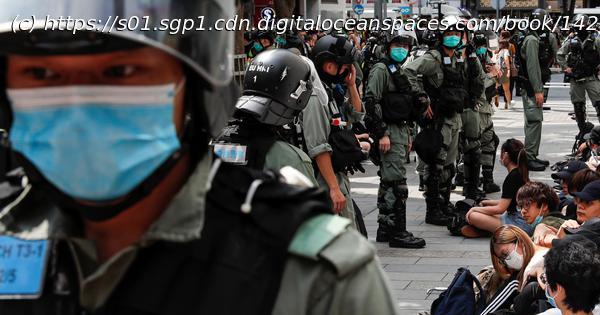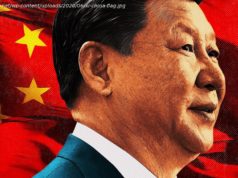China is seeking to curb separatism and dissent in the autonomous region.
Tensions are running high in Hong Kong at a decision by China’s ruling body, the National People’s Congress, authorising its standing committee to draft a national security law for Hong Kong. The decision, drafted in secret, is likely to become law by August.
It should never have come to this. Article 18 of Hong Kong’s Basic Law – the territory’s de facto mini-constitution that came into effect after the British handover in 1997 – specifically limited Beijing from applying national laws to the territory, except in matters of defence and foreign affairs. The NPC decision changes all that. It not only authorises the standing committee to draft such a law, it allows the law to be inserted into Hong Kong’s Basic Law by promulgation.
This completely by-passes the Legislative Council, the law-making body of the Hong Kong Special Administrative Region, or HKSAR, government, and creates new national security crimes. It talks, for example, of “unflinchingly” preventing, stopping and punishing any conduct that seriously endangers national security, such as separatism, subversion of state power, or organising and carrying out terrorist activities. Any activities by foreign and overseas forces that interfere “in any fashion” in the affairs of Hong Kong, and any overseas forces that use Hong Kong to carry out “separatist, subversive, infiltrative or destructive activities”, will be punished.
Articles 3 and 4 of the decision also specifically reiterate the HKSAR’s obligation to enact its own national security law. Hong Kongers thus face the dubious prospect of having not one but two national security laws.
The United States Secretary of State, Mike Pompeo, claimed the NPC’s decision means Hong Kong is no longer politically autonomous from mainland China. The US could now revoke the special status it accords Hong Kong, and which gives it favourable trading terms. This, married with further US sanctions, is a threat to China’s economy. Worse still, it would be fatal to Hong Kong’s standing as one of the world’s major financial centres.
Under a 1984 Joint Sino-British Declaration, Britain retains a watching brief, sanctioned by an international treaty lodged with the United Nations. Once upon a time, such treaties meant something. Despite this, apart from a few stalwart voices, the United Kingdom’s initial response was muted, despite the fact that Hong Kong was a British colony until 1997. However, on May 28, the NPC decision finally prompted the British government to offer 300,000 Hong Kongers sanctuary in the form of the right to live in the UK.
Домой
United States
USA — China Explained: The national security bill fuelling Hong Kong’s discontent against China






